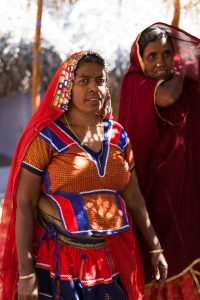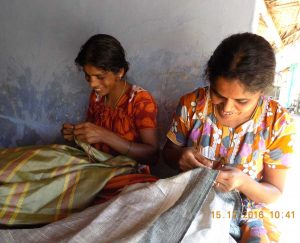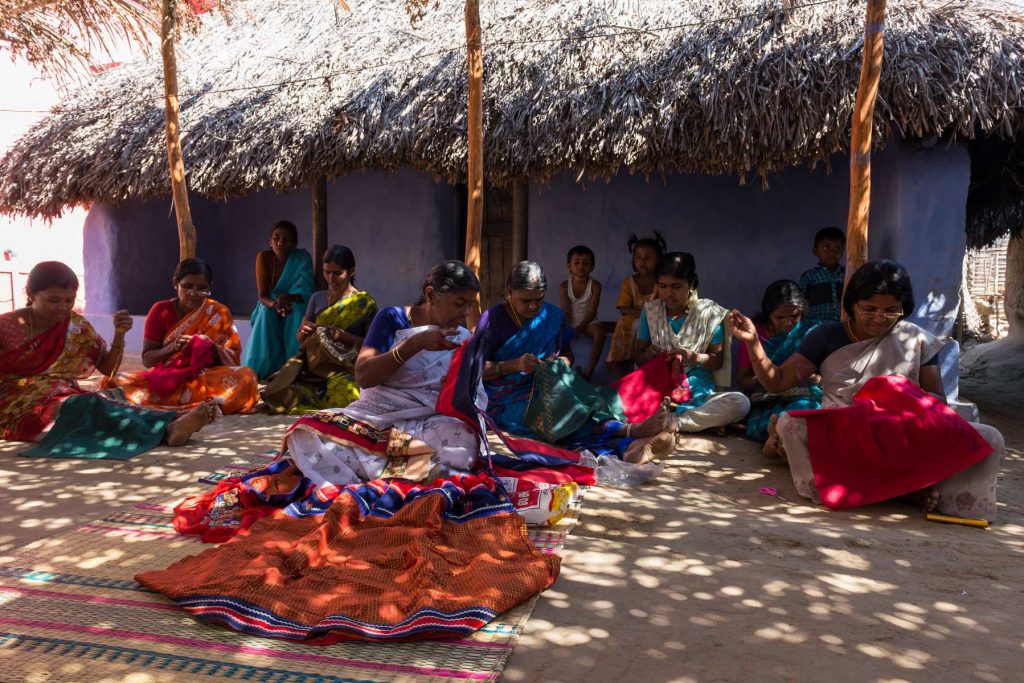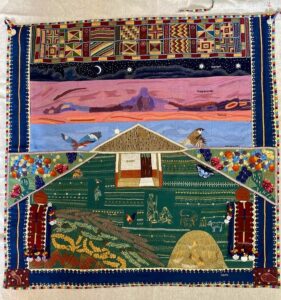
The Lambadi, originally a nomadic tribe from the north-western India, had migrated down south to escape persecution and with the Mughal army later between 3 to 5 centuries ago and settled in Maharashtra, Karnataka, Andhra and Tamil Nadu. These communities who were once nomadic has since settled in remote locations for the past few generations.

It was in 2006, when the craft had long ceased to be practiced, that Tribal Health Initiative, working with the Lambadi women in community health, farming etc., commenced a dialogue with them about their traditional crafts. As a result, from two senior women who had learnt the craft in their childhood but never quite practiced it, another 12 women learned it and revived the craft. They called their venture Porgai (Porgai in Lambadi dialect means pride). It was a difficult task at first to make them believe that they could do fine quality work and that this work would fetch them some extra income . “Who will want to buy our clothes in this modern time?” many asked. But with persistence, training and skill development, they slowly learned to embroider deftly on cloth with their traditional designs and colour. The Porgai producer group was formed in 2006 which was registered as a society called Porgai Artisan’s Association in 2011

About 65 women are registered with Porgai Society. These women, who were earlier working as farm labourers, could get no regular source of income. Lalitha motivated some of the senior members of the tribe to impart training to youngsters in Lambadi embroidery.
She has also helped them participate in trade fairs and expos and showcase the tribal artifacts on such platforms. The society sold Rs 62 lakh worth goods last year. The sale included export of ethnic hand embroidered home furnishing products to Switzerland as well.

Porgai artifacts have drawn students from fashion designing schools as well. At least half-a-dozen interns from places like Bangalore, Delhi and Mumbai are working with the tribal women, helping them retain the ethnic embroidery work while trying to improvise on the design aspect and make them trendy.
